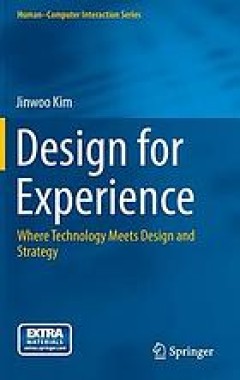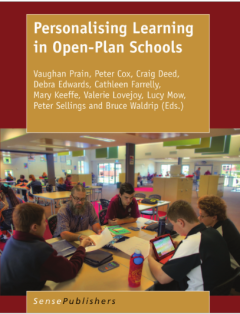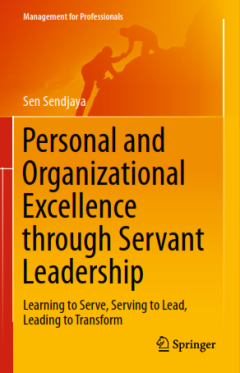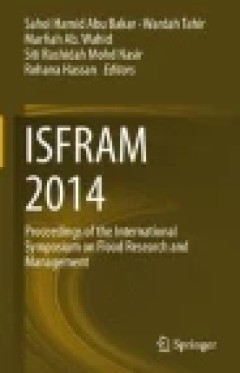Filter by

Design for Experience Where Technology Meets Design and Strategy
Presents a strategic perspective and design methodology that guide the process of developing digital products and services that provide?real experience? to users. Only when the material experienced runs its course to fulfilment is it then regarded as?real experience? that is distinctively senseful, evaluated as valuable, and harmoniously related to others. Based on the theoretical background of…
- Edition
- -
- ISBN/ISSN
- 9783319143040
- Collation
- -
- Series Title
- -
- Call Number
- 338.71

But I Don’t See Color : The Perils, Practices, and Possibilities of Antirac…
Racism is still very prevalent and pervasive in all aspects of the P-12 educational experience in the United States. Far too many teachers and administrators continue to respond to this challenge by applying colorblind perspectives and approaches. This edited volume provides a broad and comprehensive critique of colorblindness in various educational contexts. In an attempt to advocate for a mor…
- Edition
- -
- ISBN/ISSN
- 978-94-6300-585-2
- Collation
- -
- Series Title
- -
- Call Number
- 370

Business and Politics in Asia's Key Financial Centres : Hong Kong, Singapore …
This book provides unique insights into the politics of finance and the socio-political relations which drive financial policymaking in Hong kong, Singapore, and Shanghai. While the existing literature in the field focuses mainly on economic explanations for financial centre development, this book fills a gap by focusing on the socio-political relations which underpin the financial policy-makin…
- Edition
- -
- ISBN/ISSN
- 978-981-287-985-1
- Collation
- -
- Series Title
- -
- Call Number
- 330

Personal and Organizational Excellence through Servant Leadership; Learning t…
Keunggulan Pribadi dan Organisasi melalui Kepemimpinan yang Melayani; Belajar untuk Melayani, Melayani untuk Memimpin, Memimpin untuk Mengubah. Di dunia yang disibukkan oleh kepentingan pribadi dan dirancang dengan cermat untuk membuat kita berfungsi dalam perlombaan hidup yang terus-menerus, kepemimpinan yang melayani dengan daya tariknya yang tampaknya tinggi sering kali disambut dengan kecur…
- Edition
- -
- ISBN/ISSN
- 978-3-319-16196-9
- Collation
- -
- Series Title
- Management for Professionals (MANAGPROF)
- Call Number
- 324.22 SEN p

Personalising Learning in Open-Plan Schools
Kami telah belajar banyak dari penelitian kami tentang BEP tentang personalisasi pembelajaran. Dengan risiko menawarkan analogi reduktif, kami menganggap bahwa peran guru dalam pengaturan baru ini seperti menjadi instruktur mengemudi.Saat mengajar anak muda mengemudi, Anda tidak menghabiskan sebagian besar waktu di kursi pengemudi, membuat peserta didik menonton dan mendengarkan (meskipun persi…
- Edition
- -
- ISBN/ISSN
- 978-94-6300-193-9
- Collation
- -
- Series Title
- -
- Call Number
- 371.1 PRA p

Personalising Learning in Open-Plan Schools
Kami telah belajar banyak dari penelitian kami tentang BEP tentang personalisasi pembelajaran. Dengan risiko menawarkan analogi reduktif, kami menganggap bahwa peran guru dalam pengaturan baru ini seperti menjadi instruktur mengemudi.Saat mengajar anak muda mengemudi, Anda tidak menghabiskan sebagian besar waktu di kursi pengemudi, membuat peserta didik menonton dan mendengarkan (meskipun persi…
- Edition
- -
- ISBN/ISSN
- 978-94-6300-193-9
- Collation
- -
- Series Title
- -
- Call Number
- 371.1 PRA p

Design for Micro-Combined Cooling, Heating and Power Systems : Stirling Engin…
Design for Micro-Combined Cooling, Heating & Power Systems? provides a manual for the technical and structural design of systems for supplying decentralised energy in residential buildings. It presents the micro-combined cooling, heating & power systems Stirling engines & renewable energy sources (mCCHP-SE-RES) systems in an accessible manner both for the public at large, and for professionals …
- Edition
- -
- ISBN/ISSN
- 9781447162544
- Collation
- vii, 394 pages
- Series Title
- -
- Call Number
- 333.794

Ideas in Marketing: Finding the New and Polishing the Old
Founded in 1971, the Academy of Marketing Science is an international organization dedicated to promoting timely explorations of phenomena related to the science of marketing in theory, research, and practice. Among its services to members and the community at large, the Academy offers conferences, congresses and symposia that attract delegates from around the world. Presentations from these ev…
- Edition
- -
- ISBN/ISSN
- 978-3-319-10950-3
- Collation
- LXV, 842
- Series Title
- -
- Call Number
- 380.1 IDE

ISFRAM 2014: Proceedings of the International Symposium on Flood Research and…
This book highlights research in flood related areas and sustainable management conducted by researchers around the world, compiling their innovative work in order to share best practices for managing floods and recommended flood solutions. The individual papers cover the fundamentals and latest advances in the areas of flood research and management, providing in-depth coverage complemented by …
- Edition
- -
- ISBN/ISSN
- 978-981-287-364-4
- Collation
- XVII, 317
- Series Title
- -
- Call Number
- 363.7 ISF

Personal Knowledge Management, Leadership Styles, and Organisational Performa…
Penelitian ini meneliti hubungan antara demografi responden, keterampilan manajemen pengetahuan pribadi (PKM) mereka, gaya kepemimpinan mereka dan kinerja serta ukuran organisasi mereka; ini menyelidiki sejauh mana PKM dan gaya kepemimpinan manajemen puncak menguntungkan bagi industri perawatan kesehatan. Kuesioner survei dibagikan kepada 1.000 manajer puncak rumah sakit di Thailand, dan tangga…
- Edition
- -
- ISBN/ISSN
- 978-981-287-438-2
- Collation
- -
- Series Title
- Briefs in Business (BRIEFSBUSINESS)
- Call Number
- 303.34 ZUM p
 Computer Science, Information & General Works
Computer Science, Information & General Works  Philosophy & Psychology
Philosophy & Psychology  Religion
Religion  Social Sciences
Social Sciences  Language
Language  Pure Science
Pure Science  Applied Sciences
Applied Sciences  Art & Recreation
Art & Recreation  Literature
Literature  History & Geography
History & Geography